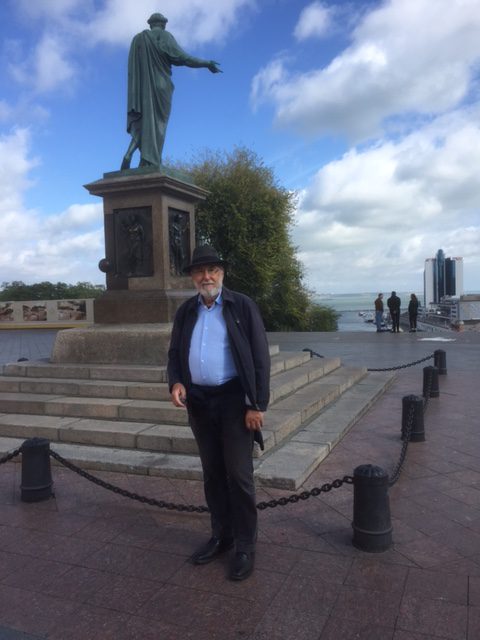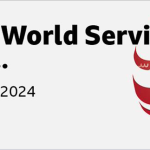What is the future for Putin, Russia, and global relations?
The AEJ’s Tony Robinson, former FT correspondent in Moscow, Rome and east European editor, has this look past the current fighting in Ukraine.
Looking beyond the war
From Anthony Robinson 24 March 2022

Once the truth about Putin’s war on Ukraine and the reasons for Russia’s economic and financial isolation spreads beyond the inner regime and Russia’s social media strata the Putin regime will struggle to retain its totalitarian control.
The sudden transition from all powerful man of destiny to Wizard of Oz has happened before, although Stalin and most other repressive rulers died naturally. After centuries of autocratic rule and the last two decades of increasingly authoritarian “vertical of power” Russia is still without an institutional method of transferring power, or indeed genuine democratic institutions of any kind. The underlying brittleness of Putin’s highly personal regime is even more extreme than its Soviet predecessor.
Putin and/or his successors now face a very different external environment.
Contrite Western governments, finance and business people have been falling over themselves to undo the habits of decades of kow-towing. Putin’s all-out invasion of Ukraine removed the scales from western, but especially German eyes. Until now the nation’s deep sense of shame for the savagery of Nazi Germany’s invasion of Russia in the second world war, its gratitude for re-unification, and the mutual profitability of Russian oil, gas and raw materials in exchange for German trains, cars, trucks, machine tools, all led to deep reluctance to stand up to Russia’s increasing arrogance.
Western companies generally were only too willing to confirm Lenin’s cynical but accurate one-liner “the capitalists will sell us the rope to hang them with.”
Londongrad has become a shameless symbol of democracies’ willingness to collude in the subversion of their own laws, institutions and morals, which helped to convince Putin of western weakness and hypocrisy.
Had NATO countries fulfilled their commitment to the values they proclaimed, Putin may have been less convinced of western weakness.
After weeks of war however the world is already a different place.
The strength of Ukrainian resistance and the inspired leadership of Volodymyr Zelensky has created a willing and formidable nation in arms. The comparison with Putin’s cowed civil society and the performance of Russia’s psychologically unprepared and misinformed armed forces is transparent. Russia has already “lost” the war in the eyes of the world but remains capable of inflicting immense damage to Ukraine and to itself until Putin is removed.
Only the Russians can do that.
Only then should negotiations start for the removal of all Russian forces from Ukraine and a post-war settlement which helps to prevent a post-Putin Russia collapsing into the sort of moral, political and economic collapse that followed the disintegration of the Soviet Union. An up to date version of Marshall Aid for Ukraine and Russia drawing on the experience which helped Europe recover after 1945 would be better than the punishment and reparations which weakened the Weimar Republic and led to Hitler after Versailles.
Before such rapprochement can take place, however, Putin and his fellow conspirators should face trial for war crimes. Russians themselves will also have to acknowledge and apologise for an unprovoked, aggressive war waged in their name, by their armed forces. Russia’s failure to honestly face up to its traumatic history, as Germans tried to do after the war, is what underlies the recurrence of oppressive regimes. Instead Putin tried to rehabilitate and emulate Stalin.
For Russia to be helped, Russians themselves must honestly confront the truth of the horrors committed in their name — not only in Ukraine today, but also and above all on themselves by Stalin and decades of bloodthirsty, intolerant ideologies.
There are a growing number of analysts and observers looking at the immediate result of the war and its consequences:
Envisaging a European future – Tony Robinson March 5 2022
Can Europe embargo energy supplies?
Lasting consequences says World Bank president
A changing Europe – The Conversation (UK based, academic supported)
The future for China-Russia relations – Council on Geostrategy (UK)
How the war might end – Atlantic Council
Vladimir Putin’s vision? – RUSI
Putin’s endgame? – Aljazeera
Is Putin paranoid? – Foreign Policy (U.S. based)
Putin vulnerable – Center for Strategic and International Studies (CSIS – USA funded)





